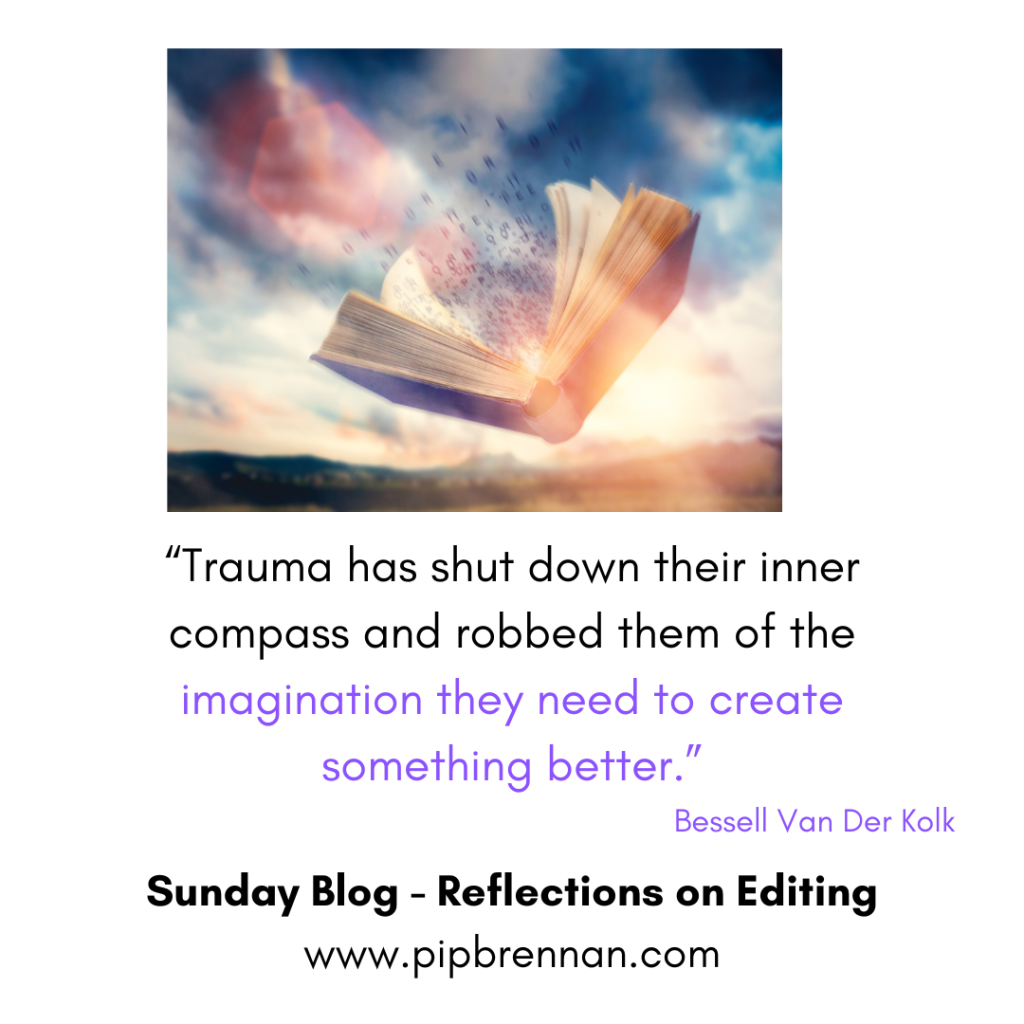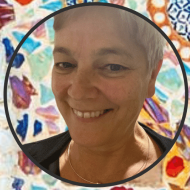Sunday Blog 121 – 4th February 2024

For a brief period while in London I flirted with acting and improvisation classes. Once I had to try my hand at playing an East Ender talking things over with a mate. I was supposed to be poor, in trouble with the law, in a tight corner.
“Stop!” The tutor said after a while. “You just don’t sound like someone who has no options.”
My drama teacher could hear my imaginative cogs whirring and failing to catch as I tried a patter of hard-talking, imitated cynicism. It just didn’t sound right. I had no mental picture of a life launched from a rickety childhood, crashing into dead-ends, barriers and recurring disasters.
As I continue on with the mammoth task of revising my 2014 memoir, Not My Story I keep on asking myself that key question;
“What is this about?”
Marion Roach Smith, The Memoir Project. A Thoroughly Non-Standardized Text for Writing & Life
This week’s answer is that it’s about trauma. And privilege. And post-traumatic growth.
This has been shaping my reading and watching list. I steeped myself in the novel Shuggie Bain and binge watched the Netflix series of the Australian novel Boy Swallows Universe. Both books are written from the perspective of the child navigating to adulthood from a childhood marred with parental abuse of alcohol and drugs. Where the needs of the children fall out the bottom and slide away.
I agree with my sister that Shuggie Bain should be called Agnes Bain. It’s a portrait of a mother, now resisting, now succumbing to the plug hole of alcoholism. Without the upbeat, action-hero ending of Boy Swallows Universe, it left a strong trace of the depth of (self-inflicted) human suffering. How doing the same thing always seems easier than doing the smart thing.
Ah Agnes, how I loved your periods of sobriety and how your boys thrived on full stomachs and the sunshine of your attention. And a break, just for a while, from their an endless worry about whether or not you were drinking that day.
Keeping on the trauma theme but switching to non-fiction, I’m now reading The Body Keeps the Score, Mind, Brain and Body in the Transformation of Trauma. Then, this paragraph leapt out at me and reminded me of my failed improv;
“Many of my patients have survived trauma through tremendous courage and persistence, only to get into the same kinds of trouble over and over again. Trauma has shut down their inner compass and robbed them of the imagination they need to create something better.”
The Body Keeps the Score, Mind, Brain and Body in the Transformation of Trauma.
And back to the memoir and its themes, and the questions it generates. My drama teacher was right. I can always imagine and positively reframe life so there’s always another option. But is this just privilege or is something else also at play? And why don’t we talk more about post traumatic growth as a thing that most people experience to some degree? An imaginative frame to bring forth something better in our lives?
There’s a lot to untangle.
